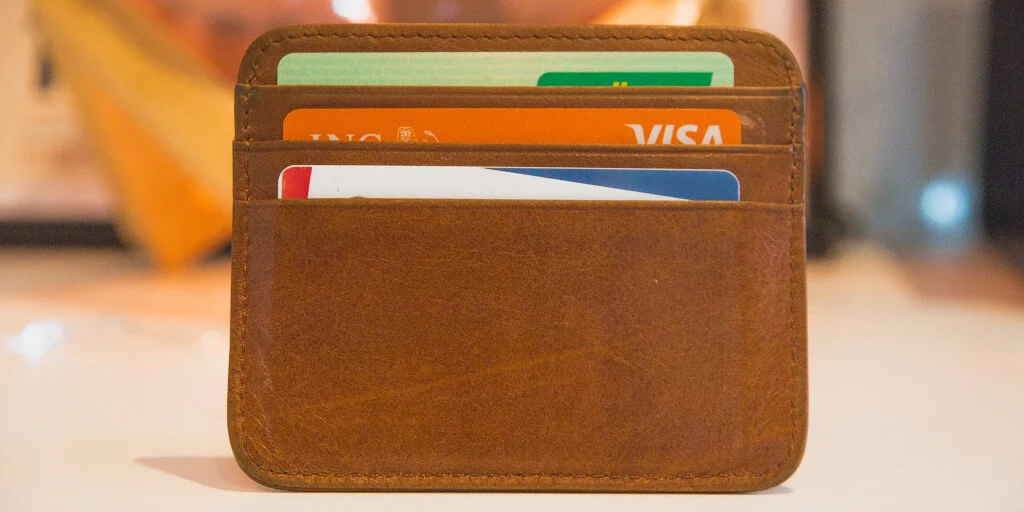Does a Debit Card Build Credit? What You Need to Know for Your Credit Score
For many people, the first kind of card they start using upon reaching adulthood is likely a debit card. There’s no wonder why: A debit card is fairly easy to apply for and receive, it can be used both online and offline, and it saves you a ton of space in your wallet—it’s much more convenient than walking around with a wallet stuffed with cash.
But as you get older and become more serious about your finances and, in particular, your credit score, you may wonder, “Does a debit card build credit in the first place?”
In this Grow Credit post, we’ll be answering that exact question. And with the information we’ll give, you'll be able to build and boost your credit score properly!
To kick things off, we’ll first go over what a debit card is for those who don’t know or those who simply need a refresher. Then, we’ll explain the specific reasons why debit cards don’t affect your credit score—at least, not normally. To round the post out, we’ll then provide you with credit-building tips and tricks that are useful for everybody.
Just read through the following sections to get yourself in the know:
What is a debit card?
Does a debit card build credit?
5 simple credit-building tips
How Grow Credit helps to build and boost your credit score
Now, let’s dive into the post.
What is a debit card?
Simply put, a debit card is a physical, rectangular card that’s mainly used to make purchases online or in person. You can also use it to transfer money from your account to another account (be it yours or somebody else’s), and to withdraw money from ATMs and cash machines.
When you use your debit card, the money comes directly out of your checking account. Your checking account is, essentially, a place for your money to live if you so wish. If you’re using a debit card and there’s not enough money to cover a purchase or transfer, it won’t complete. That’s because, unlike with credit cards where you’re able to borrow credit from a lender and purchase something you might not have been able to, you can only use the funds available in your checking account.
Some debit card providers, though, do allow people to apply for an overdraft to be attached to their checking account, which allows you to borrow money if your checking account doesn’t have enough funds to cover a purchase. For the privilege of using the overdraft, you’ll normally be charged an overdraft fee, which can be expensive.
That’s the debit card in a nutshell.
In terms of key takeaways, the team at Investopedia have compiled this short and useful list:
“Debit cards eliminate the need to carry cash or physical checks to make purchases, and they can also be used at ATMs to withdraw cash.
Debit cards usually have daily purchase limits, meaning it may not be possible to make an especially large purchase with a debit card.
Debit card purchases can usually be made with or without a personal identification number (PIN).
You may be charged an ATM transaction fee if you use your debit card to withdraw cash from an ATM that's not affiliated with the bank that issued your card.
Some debit cards offer reward programs, similar to credit card reward programs, such as 1% back on all purchases.”
The above list contains some pretty nifty benefits when it comes to having and using debit cards.
But one disadvantage of debit cards is that having and using debit cards rarely has an impact on your credit score.
Does a debit card build credit?
As we’ve already established in the section above, your debit card is directly linked to your checking account. When you’re purchasing something with your debit card (and when you’re not making use of an overdraft) it’s your own money—and only your money—that’s being used.
All of that financial information—how much money you have in your current account, what your spending habits are like, your payments, and so on—doesn’t normally get reported to the three major credit bureaus (Experian, Equifax, and TransUnion), and doesn’t usually appear on your credit report, either. That’s because you’re using your own funds with the debit card, rather than credit that’s been lent to you.
If you’re only using a debit card and you haven’t taken out credit before—be it revolving credit, like a credit card, or some kind of installment loan, like a student loan or mortgage—then you could have no or a very thin credit profile, because you simply haven’t used credit before. Not having any kind of credit profile could make things more complicated when it comes to obtaining something like a credit-based loan. As Shon Anderson, the President and Chief Wealth Strategist at Anderson Financial Strategies, said to the folks at CNBC:
“I had a friend in college that was proud of his strategy to not have any credit card debt by purposely not ever having had a credit card,” he says. “To his surprise, after graduating and working as an engineer with a good salary, he was not able to obtain a car loan due to his credit profile.”
But when you use lines of credit—like a credit card—your credit profile naturally becomes more robust.
Specifically, when you use a credit card to make a purchase, the lenders cover the purchase for you—you then pay back the balance in due time, otherwise you carry over a balance that incurs extra fees. Your credit activity—namely, your payments regarding the balance—is then reported to the credit bureaus. It’s this information that helps establish and dictate your credit score, and it’s your credit score that determines how eligible you are when it comes to loans. If you use the credit that’s loaned to you responsibly, you can build your credit score. But if you aren’t responsible with credit, you can harm your credit score—and other areas of your life—in a major way.
(It’s important to note that you should never open a line of credit (like a credit card) if you aren’t financially comfortable enough to fully cover and pay the credit back in a regular, timely fashion. Taking on unmanageable levels of debt—for whatever reason, including in an attempt to build your credit score—is never worth it.)
Is a debit card not useful for building credit, then?
Looping back to debit cards themselves, a debit card certainly isn’t bad to have. On the contrary, having and using a debit card can certainly be convenient for everyday life.
But, when it comes down to your credit score, having and using a debit card doesn’t usually make much—if any—difference. (There are some companies that offer debit cards that report your financial activity to credit bureaus, but, at the time of writing, these are few and far between.)
5 simple credit-building tips
Now that we’ve answered the question of “does a debit card build credit?”, it’s time we supplied a selection of tips and tricks that’ll actually impact and improve your credit score, seeing as debit cards by and large don’t.
The following tips have been written assuming that you already have some kind of credit profile and have taken out a line of credit—like a credit card, for instance:
1. Make regular on time (and full) payments
Did you know that 35% of your credit score is based on your payment history? With this in mind, the most effective way to better your credit score is simply by ensuring that you pay (and/or repay) bills, borrowed credit, and the like on time—and in full, too. Don’t let forgetfulness tarnish your credit score: Setting up automatic payments will take care of the work for you, so you don’t have to scramble around frantically when you realize it’s deadline day to make a payment. Another tip is, if possible, to make payments a little ahead of deadline days, just so there’s a buffer.
2. Limit how much credit you utilize
Although this may be easier said than done, try to limit how much credit you utilize—30% and below of your credit limit is the recommended number. Why? Using a lower percentage shows that you’re not in over your head financially; using a larger amount of credit, meanwhile, can raise warning flags for both current and future lenders. As mentioned in a previously published article of ours, Available Credit: What It Is, Why It’s Important, and How to Use It Sensibly!, calculating how much credit you’re utilizing is easy thanks to tools like this.
3. Juggle a credit mix
Simply put, a credit mix is a combination of different types of credit—like the aforementioned revolving credit and installment loan. Having a credit mix is advantageous for your credit score, as it shows lenders that you’re capable of managing different types of credit. However, you do have to actually be able to manage them well to benefit. If you take on a credit mix that you can’t afford and sustain, you’ll be damaging your credit score (among other things) rather than improving it. Always make sure you’re in a financially comfortable enough position before taking on any new credit.
4. Check your credit report for errors
Errors, unfortunately, can happen from time to time. Whether they’re an accident on your end—such as typing in and giving a similar but ultimately wrong residential address—or it's been wrongly suggested you didn’t pay back something on time, checking your credit report for errors is good to get into the habit of doing. If a mistake is spotted, it can be disputed—and potentially amended, too.
5. Use a credit-building tool like Grow Credit
No matter what your credit score is—or if you even have one at all!—credit-building tools can help you improve your credit score. While each tool works differently, Grow Credit is pretty straightforward. If your application is approved, you will be given a Grow Credit Mastercard, which you can then use to pay your subscription bills off. So, by using your Grow Credit Mastercard for subscription payments rather than a debit card, you’re making a difference when it comes to your credit score!
Hopefully, this list of tips and tricks have helped.
If the last tip in particular has caught your attention, here’s the complete low-down on Grow Credit.
How Grow Credit helps to build and boost your credit score
Grow Credit assists U.S. residents with establishing, improving, and maintaining their credit scores. After successfully applying for a free and virtual Grow Credit Mastercard (which reports as a line of credit on your credit report), you can use it to pay small-scale subscription bills for Netflix, Amazon Prime, Spotify, and many more subscription-based services. And as long as you pay back the money that’s advanced from your Grow Credit Mastercard in good time, your credit score will rise over time.
Here’s a quick video explainer.
Applying for a Grow Credit Mastercard is easy and efficient, and you can kick the process off by downloading our iOS or Android apps, or by visiting our website. Just make sure you have the following (and in your own name) before beginning the application process:
A bank account (that’s been open for at least 60 days)
A valid email address
A working phone number
A social security number
A physical U.S. address and resident status
A minimum income of $1,200 per month (for at least two months)
An account balance of at least $100
And to be age 18+
If you meet the short list of requirements, then what’s stopping you from applying?
It’s time to grow your credit score with Grow Credit.





